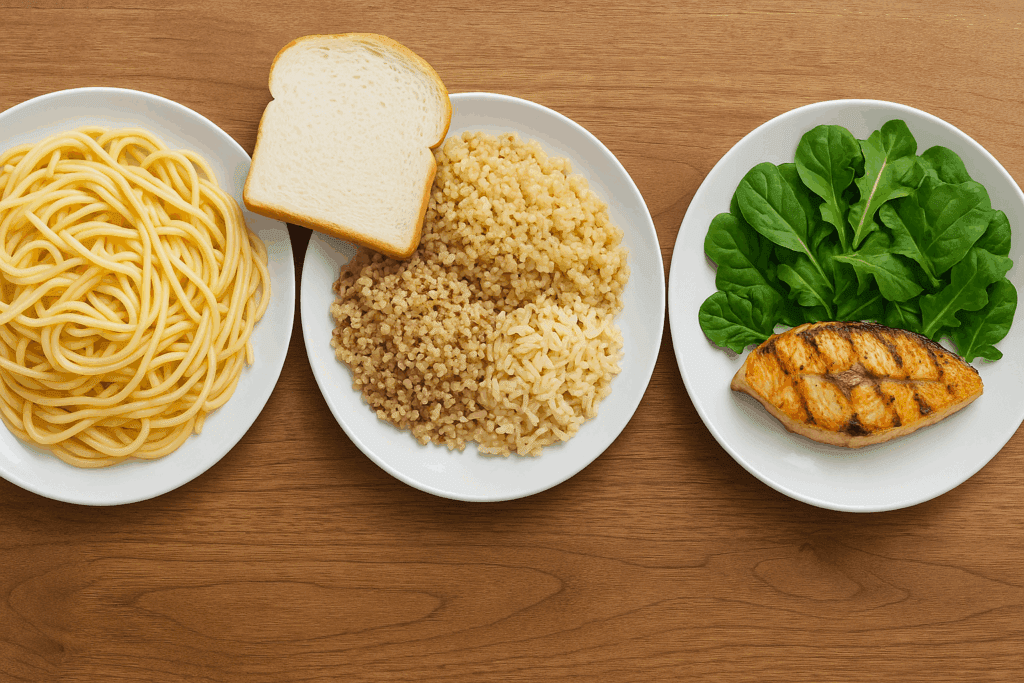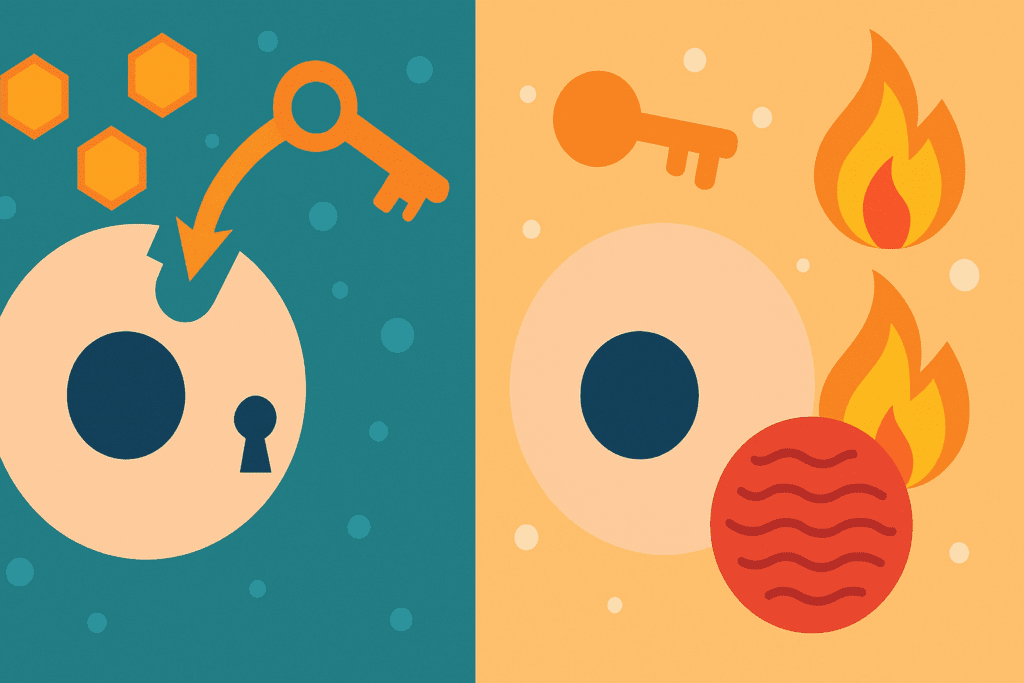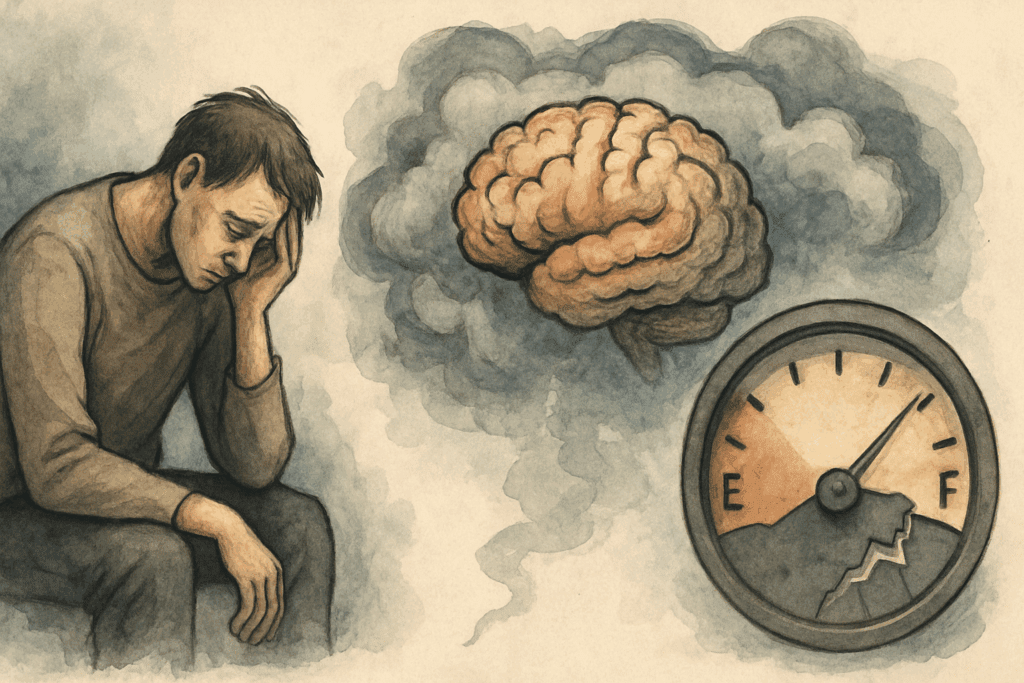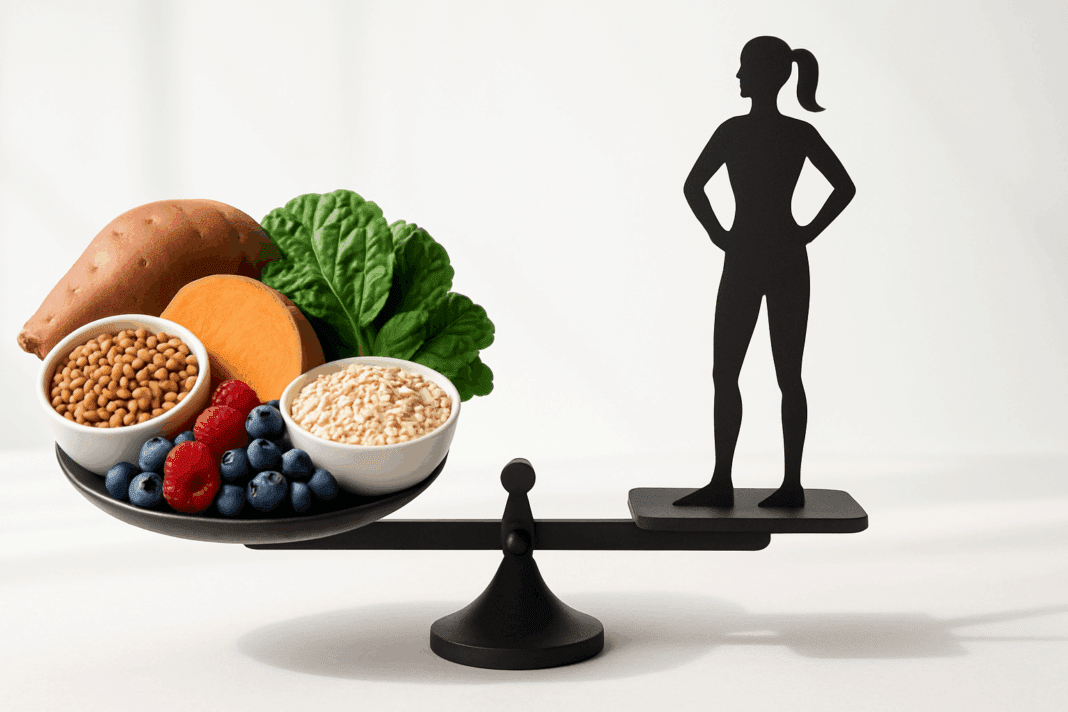Understanding Carbohydrates: What Role Do They Play in Weight Loss?
Carbohydrates are one of the three essential macronutrients our bodies rely on for energy, alongside protein and fat. When we consume carbs, they are broken down into glucose, which fuels our cells and supports numerous physiological functions. However, when carbohydrate intake exceeds our energy needs, that excess can be stored as fat—especially in sedentary individuals. This fundamental biological principle is why carbohydrates are often scrutinized in weight loss conversations. But it’s important to remember that not all carbs are created equal. The quality, quantity, and source of carbs greatly affect how they influence metabolism and body composition.
You may also like: Expert-Backed Weight Loss Tips for a Healthier Lifestyle: What You Need to Know for Long-Term Weight Control and Wellness
To determine how much carbs per day to lose weight, it’s essential to understand individual differences in metabolism, insulin sensitivity, physical activity levels, and overall health status. While low carb diets are commonly used for fat loss, the definition of what qualifies as “low carb” varies significantly across different dietary approaches. As such, there is no one-size-fits-all answer. This article explores the science-backed guidelines for daily carbohydrate intake for weight loss, addresses how many carbs a day is low carb, and provides expert-level insight on how carbs and weight loss are interconnected.

Defining Low Carb: How Many Carbs Is Considered a Low Carb Diet?
The term “low carb” is deceptively simple. For one person, it may mean under 150 grams of carbohydrates per day, while for someone on a ketogenic diet, it might mean fewer than 50 grams. According to many clinical nutrition guidelines, a low carb diet is typically defined as providing less than 26% of total daily calories from carbohydrates. On a standard 2,000-calorie diet, that equates to approximately 130 grams or fewer of carbohydrates per day. In contrast, a very low carb or ketogenic diet often limits carbs to about 20–50 grams daily to induce ketosis, a metabolic state where the body burns fat for fuel instead of glucose.
Understanding how many grams of carbs is low carb is crucial for choosing a sustainable approach. While very low carb plans may deliver rapid fat loss, they can also cause side effects like fatigue, brain fog, or digestive discomfort—especially when followed without medical guidance. For this reason, many experts recommend a gradual reduction in carbs, allowing the body to adapt without triggering a stress response. This brings up an important question: how many carbs should I eat to lose weight in a way that’s both effective and sustainable? The answer often lies in moderation, strategic carb timing, and prioritizing quality over mere quantity.

The Science Behind Carbs and Weight Loss
When discussing carbs and weight loss, it’s essential to understand the hormonal mechanisms involved. Carbohydrate intake strongly influences insulin levels. Insulin is an anabolic hormone that not only regulates blood sugar but also promotes fat storage when chronically elevated. Reducing carbohydrate intake can decrease insulin levels, encouraging the body to tap into stored fat for energy. This process underpins many low carb diet philosophies.
Yet, weight loss is not purely about insulin. Energy balance—the relationship between calories consumed and calories burned—still plays a major role. That said, many people find that reducing their daily carbohydrate intake leads to lower appetite, improved satiety, and fewer cravings. This makes it easier to maintain a calorie deficit over time, even without tracking calories meticulously. So when people ask how many carbohydrates per day to lose weight, it’s not just a matter of numbers—it’s also about how those carbs impact hunger, hormones, and adherence to a healthy lifestyle.

Daily Carbohydrate Intake for Fat Loss: What the Research Says
Numerous studies have attempted to pinpoint how many carbs per day to lose weight effectively. Research published in journals such as The American Journal of Clinical Nutrition suggests that individuals who follow a low carb diet typically consume between 50 to 150 grams of carbs daily, depending on their goals. For more aggressive fat loss, the lower end of that spectrum—around 50 to 75 grams—may be more effective, especially for those with insulin resistance or metabolic syndrome.
Still, context matters. An active individual who engages in regular strength training or endurance exercise may benefit from slightly higher carbohydrate intake without compromising fat loss. In fact, consuming strategic amounts of complex carbohydrates post-workout can help with muscle recovery and long-term metabolic health. Determining how many grams of carbs per day to lose weight must be tailored to the individual’s needs, taking into account age, activity level, metabolic health, and overall goals.
How Many Carbs to Lose Weight? Customizing Intake for Your Body
One of the most common questions people have when starting a fat loss journey is how many carbs a day for fat loss is appropriate for them. The answer is more nuanced than many diet plans suggest. A personalized approach is key. As a general framework, someone aiming for moderate fat loss might start with 100 to 130 grams of carbs per day. This level typically supports steady weight loss while still allowing for a variety of fruits, vegetables, and whole grains.
For those seeking faster results, dropping to 50 to 100 grams per day can accelerate fat burning, especially when combined with high protein intake and resistance training. However, going too low in carbs can lead to symptoms of deficiency, such as fatigue, irritability, and digestive issues. In extreme cases, one might wonder how much carbs are in a person who is deficient, especially when signs of inadequate energy, micronutrient depletion, or hormonal imbalance arise. A diet too low in carbohydrates over time can disrupt thyroid function and compromise athletic performance.

Carbohydrate Deficiency: Understanding the Risks of Too Few Carbs
Reducing carbohydrate intake can be beneficial for weight loss, but going too low for too long carries risks. Carbohydrates are not just a fuel source—they also play a role in supporting healthy brain function, hormonal regulation, and digestive balance. When asking how much carb in a low carb diet is too little, it’s vital to consider the symptoms of carbohydrate deficiency. These may include brain fog, mood swings, muscle cramps, and impaired sleep. These signs often indicate that daily carbohydrate intake needs to be adjusted.
In extreme scenarios, particularly with prolonged very low carb diets, the body may struggle to maintain adequate electrolyte balance, leading to symptoms often referred to as the “keto flu.” This has prompted nutritionists to emphasize that low carb does not mean no carb. When evaluating how many carbs is considered low, the most evidence-based answer is anywhere between 20 to 130 grams per day—depending on the person’s overall energy needs, body composition, and metabolic flexibility. Going below 20 grams for extended periods without medical supervision is rarely recommended unless for therapeutic purposes such as epilepsy.

Low Carb Diet: How Many Grams of Carbs Support Sustainable Weight Loss?
Sustainability is often the missing piece in many weight loss plans. While some individuals thrive on ultra-low carbohydrate diets, others find them difficult to maintain. The best carbohydrates for weight loss are those that are fiber-rich, nutrient-dense, and have a low glycemic impact. These include leafy greens, berries, legumes, sweet potatoes, quinoa, and oats. Focusing on these types of carbs allows for flexibility within a low carb framework and helps prevent nutrient deficiencies.
So, when discussing how many carbs a day on a low carb diet are ideal for long-term success, a range of 80 to 130 grams per day tends to work well for most. This provides enough glucose to support brain function and physical activity while keeping insulin levels manageable. It’s a sweet spot that allows the body to shift toward fat-burning without entering the extremes of carb restriction. Moreover, spreading carbohydrate intake evenly throughout the day may support better blood sugar regulation and prevent energy crashes.
Does Cutting Back Carbs Help You Lose Weight?
Yes—but with caveats. Cutting back on carbohydrates can promote fat loss, particularly in individuals who are overweight, sedentary, or insulin resistant. This is because reducing carbohydrate intake can improve insulin sensitivity, lower circulating glucose levels, and trigger fat mobilization. But it’s not just the act of cutting carbs that leads to weight loss—it’s what replaces them. A high-fat, low-nutrient approach can be detrimental, even if it’s low in carbs. That’s why the focus should be on nutrient quality, not just macronutrient manipulation.
If someone is wondering how much carbohydrates should I eat to lose weight, they must consider their entire dietary pattern. Including the best carbs for weight loss—those rich in fiber, vitamins, and minerals—can actually enhance results. These types of carbs support gut health, satiety, and metabolic stability. So while low carb diets can be effective, their long-term success depends on intelligent carb choices rather than indiscriminate elimination.
How Many Carbs Is Low Carb? Debunking the Confusion
The phrase “how many carbs is considered low carb” is searched thousands of times each month, yet confusion persists. This is partly because different diet programs use different definitions. For example, a traditional low carb diet might define low carb as under 130 grams per day. A ketogenic diet might define it as under 50 grams. Meanwhile, a moderate carb plan may allow 150 to 200 grams per day depending on physical activity. This means that how many low carbs per day is ideal can vary based on context.
The key is to align carb intake with your body’s needs and your lifestyle demands. An office worker with low daily activity may benefit from fewer carbs than a competitive athlete training multiple hours a day. Likewise, age, hormonal changes, and chronic health conditions can influence how many carb per day to lose weight is appropriate for each person. Instead of obsessing over numbers, individuals should prioritize consistent eating patterns, nutrient-rich foods, and metabolic feedback like energy levels and hunger cues.

The Best Carbohydrates for Weight Loss: Quality Over Quantity
One of the most overlooked aspects of weight loss is the quality of the carbohydrates consumed. Not all carbs are created equal, and that’s especially important when you’re monitoring your carbs per day to lose weight. Highly processed carbs—such as white bread, pastries, sugary cereals, and soda—are rapidly digested and spike insulin, leading to fat storage and hunger soon after eating. On the other hand, complex carbohydrates such as vegetables, legumes, and whole grains are digested slowly, providing sustained energy and promoting satiety.
When people search for the best carbohydrates for weight loss, they are often directed to foods like oatmeal, lentils, beans, broccoli, and berries. These foods not only provide a slow release of energy but are also rich in prebiotic fibers that support gut health—a factor increasingly linked with metabolic wellness. Therefore, understanding how many carbs to lose weight isn’t just about cutting back—it’s about making smarter carbohydrate choices that work with your body instead of against it.
Frequently Asked Questions (FAQ): Daily Carbohydrate Intake and Weight Loss
1. Can your body show signs of carbohydrate deficiency, and how much carbs are in a person who is deficient?
Yes, a body experiencing carbohydrate deficiency often reveals it through a cluster of physical and cognitive symptoms. These may include chronic fatigue, poor concentration, mood swings, and even hormonal disturbances like irregular menstruation in women. Clinically, it’s difficult to quantify exactly how much carbs are in a person who is deficient since it depends on muscle and liver glycogen stores, which vary by individual. However, when daily carbohydrate intake consistently falls below 20 grams, many individuals begin to exhibit symptoms that suggest the body is struggling to maintain blood sugar and energy balance. Those following extremely low carb regimens should monitor these signs closely, as they may indicate that the current carb level is too restrictive to support optimal physiological function.
2. How many carbs is low carb, and why does this definition vary so much?
The term “low carb” is relative and highly context-dependent. While some experts define low carb as under 130 grams per day, others reserve the term for plans that fall under 50 grams daily, especially when discussing ketogenic strategies. So how many carbs is low carb really depends on one’s total caloric needs, activity levels, and metabolic flexibility. A competitive endurance athlete may function well on 150 grams per day and still be in a fat-burning state, while a sedentary person may need fewer than 75 grams to achieve the same result. The wide range in interpretation highlights the need for personalized planning rather than fixed targets.
3. Is there a psychological impact associated with cutting carbs per day for fat loss?
Yes, reducing carbs per day to lose weight can influence mental and emotional well-being, especially in the first few weeks. Carbohydrates help regulate serotonin, a neurotransmitter responsible for mood stabilization. For individuals who dramatically reduce their carbohydrate intake too quickly, symptoms like irritability, anxiety, or depressive moods may surface. To avoid this, it’s helpful to gradually taper carbs rather than slashing them overnight. While the goal may be to determine how many grams of carbs per day to lose weight, it’s equally important to consider mental resilience and how well you can adhere to the plan long term without compromising psychological health.
4. What are the long-term risks of following a low carb diet indefinitely?
When people ask how many low carbs per day are safe long-term, they often overlook that even beneficial dietary strategies can have drawbacks. Extended adherence to a very low carb diet—especially under 30 grams of carbs per day—can increase the risk of micronutrient deficiencies, particularly in B vitamins, magnesium, and potassium. It can also reduce gut microbiome diversity due to the lack of fermentable fibers. While there’s no doubt that low carb can accelerate weight loss initially, rotating in moderate carb days or cyclical carb refeeds may support long-term sustainability. If you’re wondering how much carbohydrates should I eat to lose weight consistently over time, aiming for flexibility may serve better than rigid restriction.
5. Are carbs bad for weight loss, or is that a common misconception?
It’s a major misconception to label all carbs as harmful for fat loss. In fact, the best carbohydrates for weight loss—like lentils, oats, quinoa, and cruciferous vegetables—can support metabolic health, appetite control, and even fat oxidation. The real issue isn’t whether carbs are bad for weight loss but rather the type and timing of the carbs consumed. High-glycemic, ultra-processed carbs can spike insulin and increase hunger, but low-glycemic, fiber-rich options do the opposite. So when considering how many carbohydrates per day to lose weight, quality should drive quantity—not the other way around.
6. How do exercise and activity level influence daily carbohydrate intake?
Your level of physical activity greatly determines how much carbs per day to lose weight will be most effective. Active individuals, especially those engaging in weight training, interval cardio, or endurance sports, often need more carbohydrates to sustain performance, repair muscle tissue, and avoid fatigue. These individuals may require up to 150 grams of carbs per day while still losing fat. In contrast, someone with a sedentary lifestyle might find success with just 75 grams daily. That’s why the question of how many carbs a day is low carb must be answered in light of one’s fitness routine, not just dietary goals.
7. What are some overlooked sources of carbs that can disrupt a low carb diet?
Many people tracking how many carbs a day on a low carb diet forget to account for hidden sources of carbohydrates. Salad dressings, sauces, sugar-free treats, flavored yogurt, and protein bars often contain added sugars or starches. Even supplements like certain electrolyte powders may contain carbs that sneak past food labels. So when someone asks how much carb in low carb diet is acceptable, it’s important to emphasize that accuracy in tracking matters. Hidden carbs can accumulate quickly, pushing you above your intended threshold without realizing it.
8. What is a good approach to calculating how many carbs to lose weight without relying on apps?
Calculating how many carbs per day to lose weight doesn’t always require sophisticated apps or trackers. A more intuitive method involves using the hand-portion model—limiting starchy carbs to one cupped handful per meal for moderate intake. Alternatively, aim to fill half your plate with non-starchy vegetables, a quarter with protein, and use the remaining quarter for fiber-rich carbs. This visual approach can help you stay within a carb limit of roughly 100 to 130 grams per day. It’s a sustainable method for those wondering how many carbs is considered low carb without the burden of logging every bite.
9. What’s the relationship between sleep quality and low carbohydrate intake?
Interestingly, poor sleep can be both a cause and a consequence of excessively low carbohydrate intake. Carbohydrates influence the synthesis of tryptophan and serotonin, which are precursors to melatonin—the hormone responsible for regulating sleep. Individuals consuming very few carbs per day may experience restlessness, disrupted sleep cycles, or early morning awakenings. For those asking how much carbs should I eat to lose weight without compromising sleep, the answer may lie in consuming a small portion of complex carbs at dinner, such as sweet potato or brown rice, to enhance overnight recovery and rest.
10. How is fat loss impacted when carb intake is inconsistent or fluctuates too much?
Inconsistent carbohydrate intake can hinder metabolic adaptation and confuse hormonal signaling. For example, if someone cycles from 50 grams to 200 grams erratically without purpose, insulin sensitivity and fat metabolism may suffer. Stability supports results. Therefore, those focused on how many carbs a day for fat loss should aim for consistency within a chosen range—whether that’s 75 to 125 grams or lower if targeting ketosis. Fluctuations without strategy can undermine weight loss progress and affect muscle retention. Having a plan that aligns with both your weekly calorie needs and training intensity can create more predictable and effective fat-burning outcomes.
Final Thoughts: Finding Your Ideal Carbs Per Day for Weight Loss Success
At the end of the day, there’s no universal answer to how much carbohydrates should I eat to lose weight. What matters is finding an approach that supports your goals, fits your lifestyle, and nurtures your long-term health. For some, a low carb plan of 50 to 100 grams per day may work well. For others, a moderate intake of 130 to 150 grams may be more sustainable. The key is to focus on whole foods, nutrient-dense choices, and consistent habits that align with your personal metabolic needs.
Whether you’re counting how many carbs a day is low carb, evaluating how many grams of carbs per day to lose weight, or simply trying to understand how many carbs is considered low, the goal should be to create a balanced, informed strategy. Cutting back on processed carbs, emphasizing the best carbs for weight loss, and adjusting intake based on feedback from your body are all effective ways to support fat loss. Remember, carbs are not inherently bad. When consumed wisely, they can be part of a powerful, sustainable plan for improved health and long-term weight management.
Further Reading:
Low-carb diet: Can it help you lose weight?


